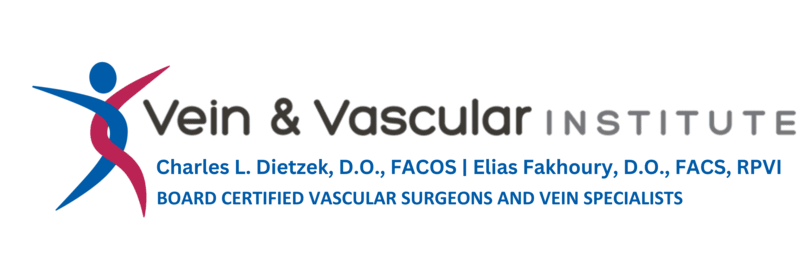Reticular veins are similar to varicose veins but smaller–and can create health problems if left untreated. The most noticeable characteristic of reticular veins is their appearance, which may look like tiny tree branches or a spider web, purple or blueish in color. Often found behind the knees, you may fail to notice them because of their location at first. And once you see them, you might dismiss them (in error) because of their relatively small size and thin, thread-like appearance. That’s why a regular checkup at your NJ vein center is wise.
Table of Contents
ToggleWhat Causes Reticular Veins and Why Are They Potentially Dangerous?
Normally invisible to the naked eye, these are superficial veins (close to the skin’s surface) that have been stretched and are over-filled or dilated with blood. Often seen on the backs of the knees, reticular veins are known as telangiectasias, a term also used to describe facial spider veins. Although most people consider spider veins a “cosmetic” issue, reticular veins can signal more serious vein problems like venous insufficiency. To preserve your vascular health (and overall health, which depends upon good circulation), you should always seek a diagnosis for veins that appear abnormal. An expert NJ vein doctor should evaluate any problem veins to determine the root cause.
Reticular Veins Can Be a Symptom of Venous Insufficiency: More Signs to Watch For
See your vascular surgeon in NJ if you notice these symptoms:
- Recurring leg discomfort or pain
- Heavy feeling in the legs
- Tired legs, leg fatigue
- Leg or ankle swelling
- Itchy Legs
- Leg cramps
- Reticular, discolored, small, thin veins behind the knees, similar to webs or tiny tree branches
How Are These Problem Veins Treated?
Your reticular vein problem can be treated quickly with a minimally invasive, outpatient procedure in our NJ vein center. Our vein specialist can recommend the best treatment option for each patient and each type of problem vein. Sclerotherapy is an often-used reticular vein treatment. In addition, our vein doctor can evaluate the function of your entire vascular system to look for more serious vein problems and help treat issues like venous insufficiency.
Get Expert Care for Reticular Veins in NJ
See your vein doctor annually or whenever you notice abnormal vein appearance (or symptoms of poor circulation), particularly in the lower legs. If you live in or near NJ, contact the Vein & Vascular Institute, run by our expert vein doctor, Dr. Charles Dietzek. Call us at 856-309-9777 for your vein care appointment today.
